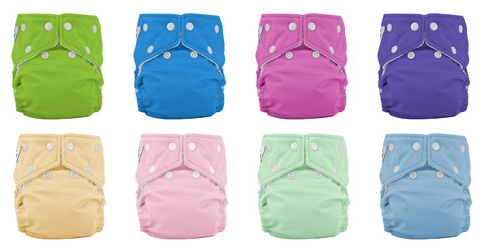Most preparedness sites cover topics specific to adults. If there are any topics about preparing for baby, it is usually centered around medical training for the birth or use of condoms to prevent it all together. But what about when baby is here? I would arguably say that preparing for babies is much more difficult than any other aspect of prepping.
- Babies depend on their caretakers for everything.
- Babies are more susceptible to infections.
- Babies outgrow their clothing FAST.
- Exposing a baby’s innocence to a disaster/emergency is a major emotional draw on the caretaker.
I can think of so many more examples of why preparing for a baby takes considerably more effort, but let’s start talking about some initial steps you can take to prepare for your baby in the event of an emergency:
Food for baby
In today’s society, I’ve recognized that breastfeeding a baby is somewhat shunned…especially in public. This general public attitude creates a stigma for moms, and encourages them to not breastfeed. On top of this stigma, the act of breastfeeding, while sounding so “natural” is anything but easy. In fact, hospitals have lactation specialists available to new moms so they can teach them how to breastfeed. For our first baby, I (as a male) originally thought it was ridiculous that there was an actual job called a lactation specialist. The act of nursing seemed so simple to me. Without going into the details, I have a new found respect for this role. If you’re a new mom, don’t give up easily. Definitely get a lactation consultant to help you through the process.
The benefits of a mother’s milk far outweighs any formula. The mother’s antibodies are passed on to the child through the milk and are an amazing protector against pathogens. Not only that, but it is easier for the child to digest and is way cheaper than formula. From a preparedness standpoint, this means not having to stock up on all those formula cans. Just make sure mom gets what she needs to eat.
When the baby gets a little older and you introduce them to semi-solid food, a potato ricer is a great addition to mash up the food you eat. It works great on most fruits, starches and veggies. Meats don’t work well with it, but if you slow cook meat, it could be shredded easily. For long term preservation of the baby food, simply can the whole fruit, veggie, or meats as you usually would. Alternatively, you can make and dehydrate your own baby food.
Hygiene
At first, I started stocking up on disposable diapers. However, this takes a lot of money and space! If you ever needed to bug out, you would only be able to carry a couple of disposables. We just started to use cloth diapers, and I was amazed to see how modern they have become. You can go the traditional route, or get a modern fashionable diaper like Charlie Banana. Wet diapers are a piece of cake. Number 2’s are no where near as bad as I thought they were. Several companies make flushable liners that are inserted into the diaper. When the baby goes #2, you just fold up the liner and put it down the toilet. The cloth portion of the diaper hardly gets messy. This is so much better than my original visual of a cloth diaper filled with you know what!
Clothing
This is a very tough aspect of caring for babies/toddlers. A good pair of boots for an adult will last years. A pair of shoes for a little one may last a couple of months. In thinking about long term survival, you need to think about having various sizes of shoes and other clothing for your young ones. Unless you’re an expert seamstress, my guidance would be to buy larger clothing in advanced. This can get very pricey, so the best outlet is going to garage or yard sales.
I’ll have more articles on prepping for baby, but hopefully this gets you thinking about their preps a little differently.
Mike



